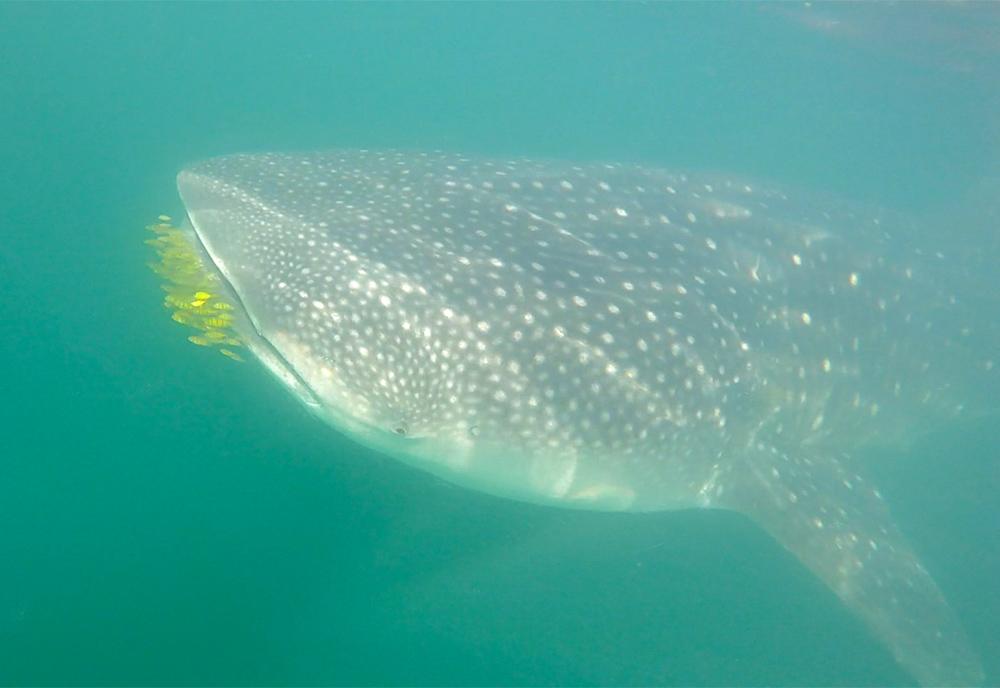

Mafia Island Whale Shark Conservation
Take part in this whale shark conservation internship project on the stunning Mafia Island in Tanzania.
Speak To A Travel Expert
Activities
This project provides a unique opportunity to interact with whale sharks whilst gaining valuable skills and experience in both marine conservation and the responsible tourism industry. During the project, you will get the opportunity to take part in the following, with all whale shark excursions coordinated by trained professionals.
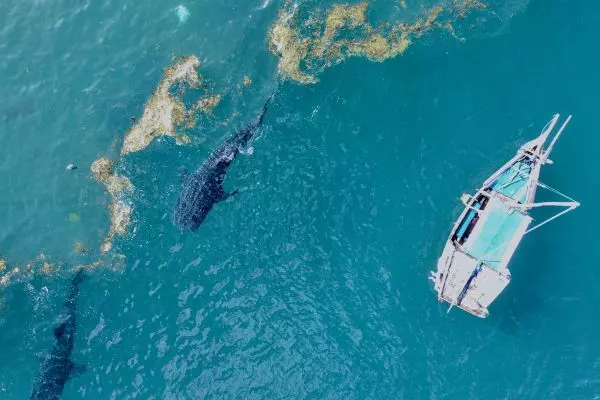
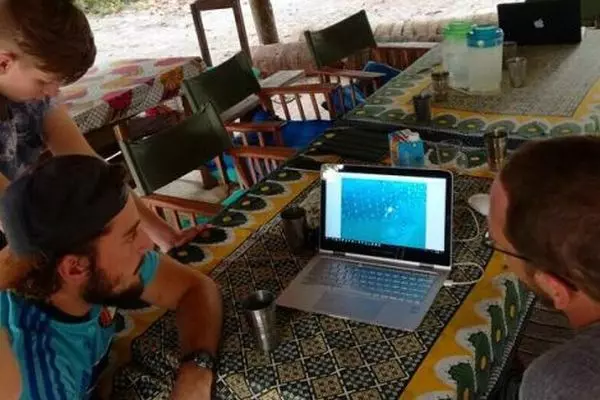
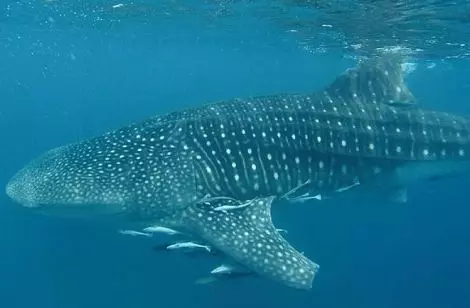
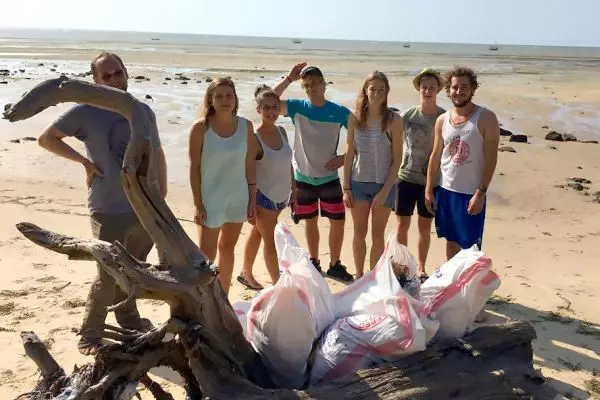
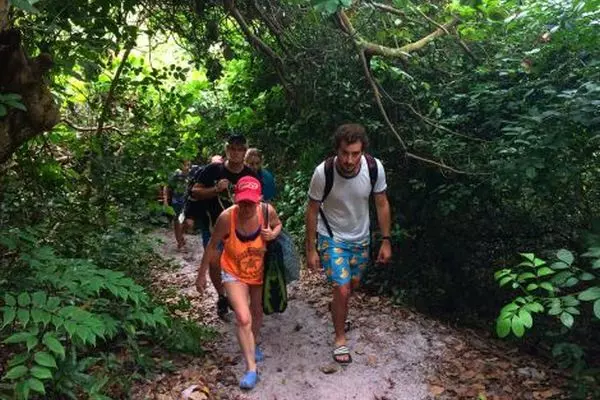
Itinerary
Durations & Prices
Accommodation
Volunteer Accommodation
Whilst on the project you will be staying at the Magemani Camp which is situated right on the beach amongst the trees of an old coconut, mango and cashew nut plantation. Traditional thatched houses of different sizes make up the camp, which are shared, same-sex dorms that house two people per room. All dorms are equipped with beds, pillows, bed linen, mosquito nets and fans. In true 'bush style', the camp features dry, composting toilets and outside showers. Free Wi-Fi is also available.
Accommodation Upgrade
If you would like your own room in the dorms, then you can do so for an additional fee of $34 per night. It is also possible to upgrade your accommodation whilst at the project to a private stilt house which is pictured here (subject to availability). The cost of this is $61 per night for solo travellers and $34 per person per night for couples. These prices are valid for the whole season except between December 20th and January 6th where the upgrade to stilt houses costs $122 per night for a solo traveller and $68 per person per night for a couple.
Meals & Beverages
Three meals of fresh local food are prepared here daily by local chefs, including a lot of fruit and seafood such as fish, octopus, and squid. Chicken and beef are also often served, and for vegetarians, there is plenty on offer. You will also be provided with tea, coffee and according to your preference, bottled or filtered water. Any extra snacks or drinks, other than what is mentioned, are not provided but can be purchased for an additional cost from the beach bar.
Project Details
When Is The Best Time To Volunteer?
This project runs from October to February, as due to their migration patterns, this is the only time whale sharks can be seen around the island.
October – December: This is a popular time as the weather is often favourable, meaning you are likely to have a lot of opportunities to go out to sea to swim with the whale sharks.
January – February: The weather during these months can be varied, meaning there may be days when you are not able to go out to sea. During periods of bad weather, it is also more difficult to see whale sharks as they do not come to the surface to feed. These are, however, the best months to go scuba diving due to increased visibility. So, if you plan on diving during your free time, we recommend joining in these months.
The peak travel season for tourists is December 20th to January 6th, so if you join during this period, more time is spent assisting with whale shark tourism excursions.
Getting There
You will need to arrive at Mafia Island on your chosen start date with most flights going via Dar es Salaam.
To do this, we recommend arriving into Dar es Salaam (DAR) and then taking a domestic flight to Mafia Island. We recommend flying with Coastal Aviation or Auric Air as both offer direct flights from Dar es Salaam to Mafia Island. Please note, these flights depart from a different terminal (1.5km away), so please allow at least 2-3 hours between your domestic and international flights to get through security and make your connecting flight.
Alternatively, you may wish to arrive the day before your start date, stay overnight in Dar es Salaam, and take a flight to Mafia Island the next day.
Visa Requirements
Most nationalities can purchase a tourist visa upon arrival into Tanzania for US$50 (US$100 for US citizens). Tourist visas are valid for up to 3 months, although you will need to make sure that your passport has at least three blank pages spare. Alternatively, it is possible to purchase your visa prior to arrival, but please ensure to speak to your local Tanzanian embassy in advance to check their application requirements/processing time.
Fitness & Skills
To join this project, it is important that you are fit and healthy and are also a better than average swimmer. Before booking, you should understand that the in-water activities are physically demanding and, if you are deemed medically unfit, you may not be able to fully participate in the in-water activities and your time in the water may be restricted or, if necessary, totally curtailed. You will also need to complete a short medical questionnaire and, if necessary, you may be required to obtain clearance from your doctor/physician.
Upon arrival, you will complete a swimming assessment to ensure you are able to take part in all aspects of the project and that you will be safe doing so. To fully participate you will be trained to do the following: pull yourself out of the water and onto the boat without assistance or ladder, swim alongside a whale shark for at least 10 minutes, assist others in the water if they are struggling, stay in the water for prolonged periods of time and free dive to 10 meters so that you can get below the whale sharks to check their sex. We therefore highly recommend improving your fitness and swimming abilities before arriving.
A dive qualification is not required for this project and almost all the work is done whilst snorkelling and skin diving.
Vaccinations
The vaccinations required will depend on the individual medical history of each volunteer. We recommend that you consult with your doctor/GP regarding your own vaccination needs as this will ensure you are protected and prepared to travel. Please also be aware that malaria is an issue here and the entire coast of Tanzania is a high-risk area, so it is important to take preventative measures. Additionally, although the yellow fever vaccine is no longer required, it is likely you will be asked to have one on arrival anyway, so we advise volunteers to arrange this at home and take the certification along with them.
Gallery
Reviews
I joined the team for a month and it was absolutely amazing. I’m so glad that I did it and I would definitely recommend it to others. We sailed out on the boat and saw and swam with whale sharks and it was so amazing and incredible! Something that I’ll never forget. The team does the work in a very respectful way to the animals, so we don’t harm the animals which was really important. Besides that we lived together with together with the team and the guests and everyone was truly welcoming and there was just always a good vibe which was so cool! Everyone was so incredibly kind and it felt like we were all friends and kind of a family living together! I had time of my life and would definitely recommend others to join the project too!
Amazing, trip of a lifetime. The team are so passionate & knowledgeable. I saw and swam with whale sharks on every trip and it's so rewarding seeing everyone enjoying themselves.
The wooden boat where we stayed on was amazing. As was its staff. The marine biologists were the best, as is the importance of their work. It was sad to see the insanely amount of boats speeding towards a whale shark, hopefully this change for the beter soon <3
What's Included
- Accommodation
- Three meals per day
- Tea, coffee and drinking water
- Airport Transfers
- Wi-Fi
What's Not Included
- Flights
- Visas
- Travel insurance
- Snorkel equipment

























